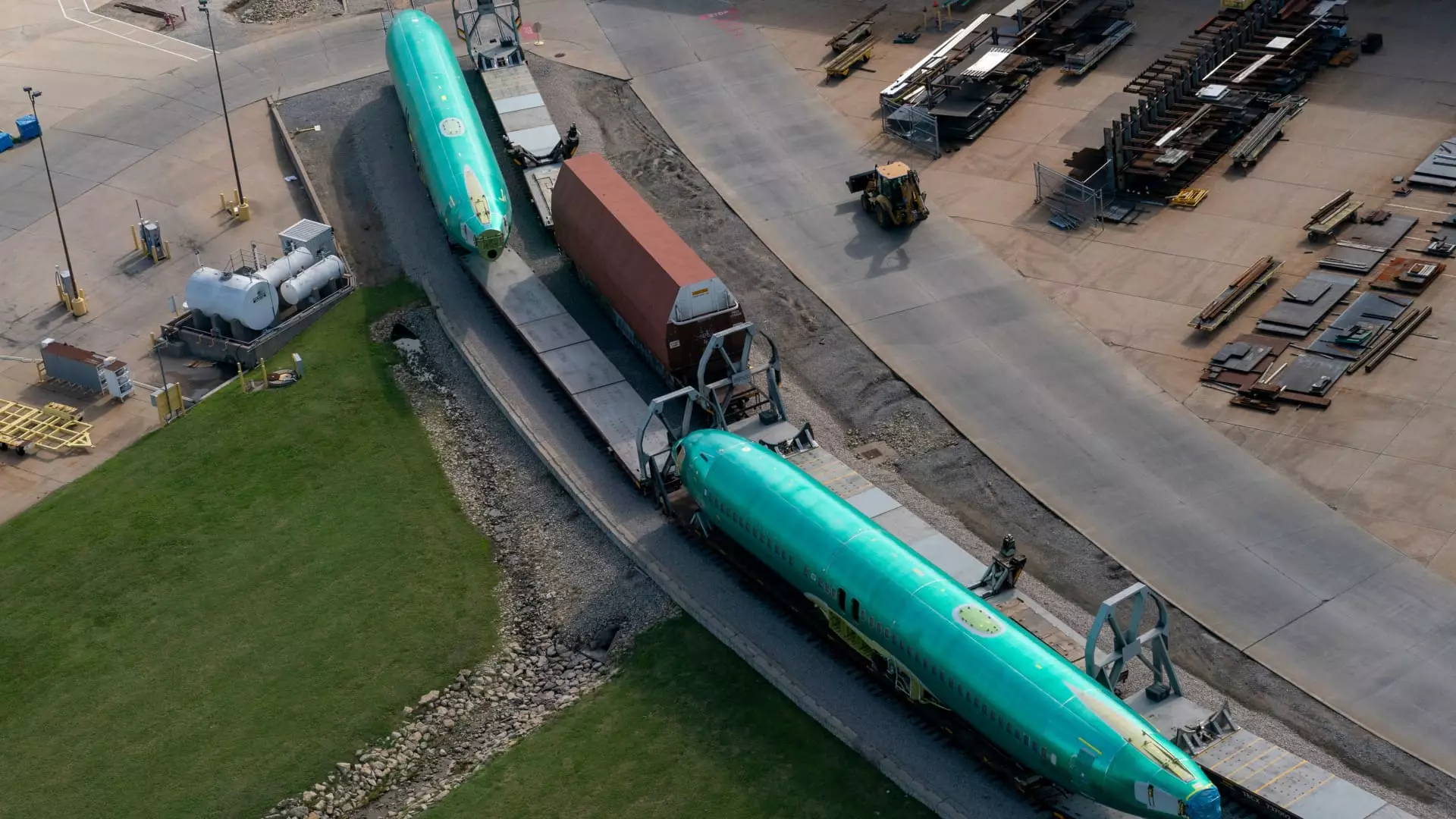The aerospace industry is currently facing significant challenges, particularly evident in the situation between Spirit AeroSystems and the Boeing machinists. As the machinists‘ strike toes into its sixth week, Boeing’s production capabilities have ground to a halt, impacting the wider supply chain. With a recent vote, a substantial 64% of the machinists rejected a proposed labor contract, indicating deep frustrations and concerns over working conditions and compensation. This refusal has prolonged uncertainty within the industry, causing suppliers like Spirit AeroSystems to consider drastic measures, including potential furloughs or layoffs of hundreds of employees if the situation does not improve by late November.
Spirit AeroSystems, a crucial manufacturer of Boeing’s fuselages and other components, is already feeling the repercussions of the strike. With preparations underway to furlough approximately 700 employees in its Wichita, Kansas facility, the company faces an uncertain future as cash flow issues mount. Reporting a staggering $477 million net loss in the third quarter, more than double the losses experienced a year prior, Spirit’s financial health is precariously hanging by a thread. The impending furloughs are not only a sign of distress but suggest that additional employee reductions may be on the horizon should the strike persist. This adds to a broader narrative of fragility within the aerospace supplier network, which has only just begun to stabilize after the disruptions brought on by the Covid-19 pandemic.
In light of the strike, Boeing’s new CEO Kelly Ortberg has underscored the urgency of reaching a deal with the Seattle-area machinists, placing this goal at the forefront of his agenda. The complexity of negotiations is compounded by the realities faced by the workers, whose dissatisfaction with previous agreements reflects broader issues of labor relations in the industry. The union’s eagerness to return to the negotiating table hints at a willingness to resolve the situation but highlights the challenges that remain in reconciling the interests of both the workforce and the company.
Boeing itself is also embroiled in a significant acquisition of Spirit AeroSystems, a move expected to be finalized next year. This acquisition could reshape the dynamics between the two companies, especially as both grapple with current operational disruptions and financial pressures. For Spirit, the acquisition carries the promise of long-term stability; however, the immediate focus must first shift to overcoming the fallout of the ongoing strike.
The turmoil faced by Spirit AeroSystems and Boeing machinists sheds light on the vulnerabilities within the aerospace supply chain. Despite the industry having invested significant efforts to rehire and restore workforce levels after the pandemic, the current climate showcases how sensitive the sector is to industrial actions. With Airbus facing similar pressures, the overarching concern about supply chain integrity is increasingly salient. As stakeholders in the aerospace ecosystem navigate these tumultuous waters, the resulting changes could have long-term implications that redefine not just company relationships but the entire landscape of aerospace manufacturing.
The situation at Spirit AeroSystems and Boeing demonstrates a conflation of labor dissatisfaction, financial woes, and supply chain vulnerabilities, underlining critical challenges that demand urgent and effective resolution.


Napsat komentář